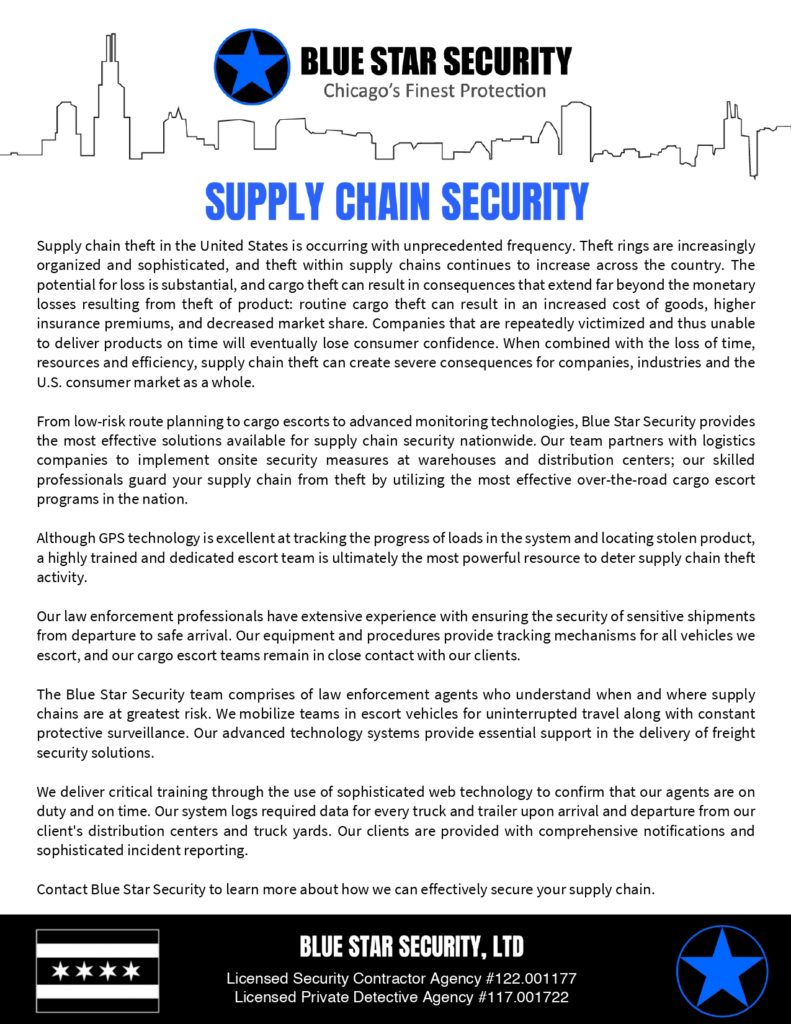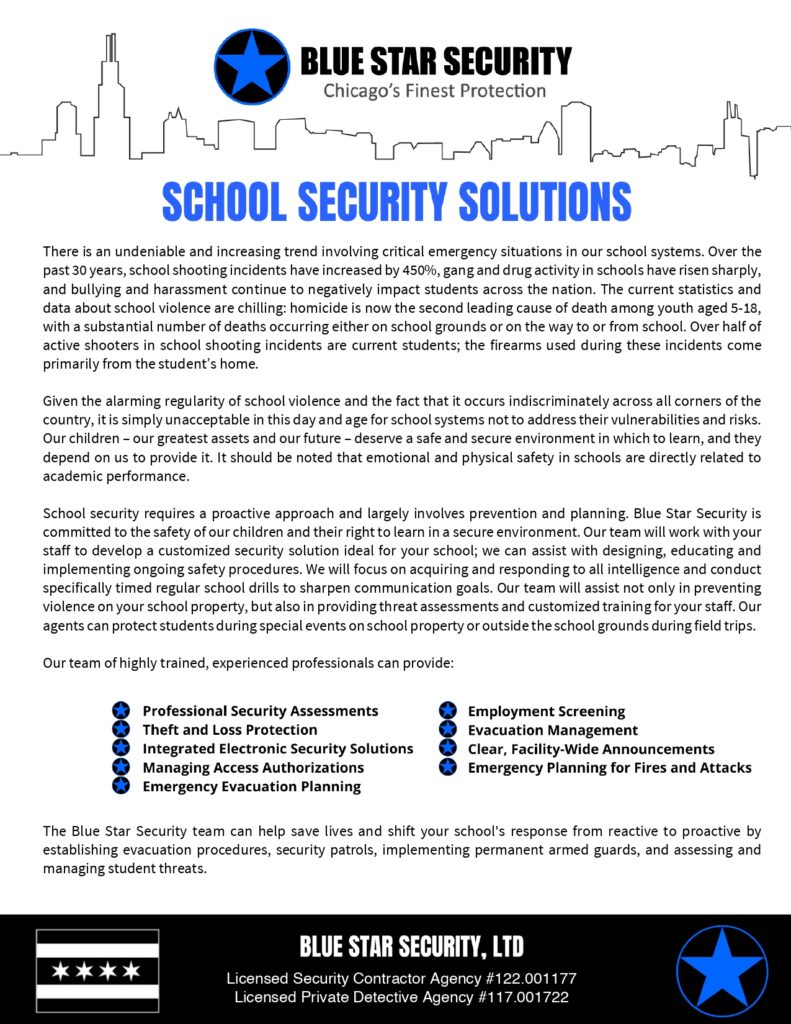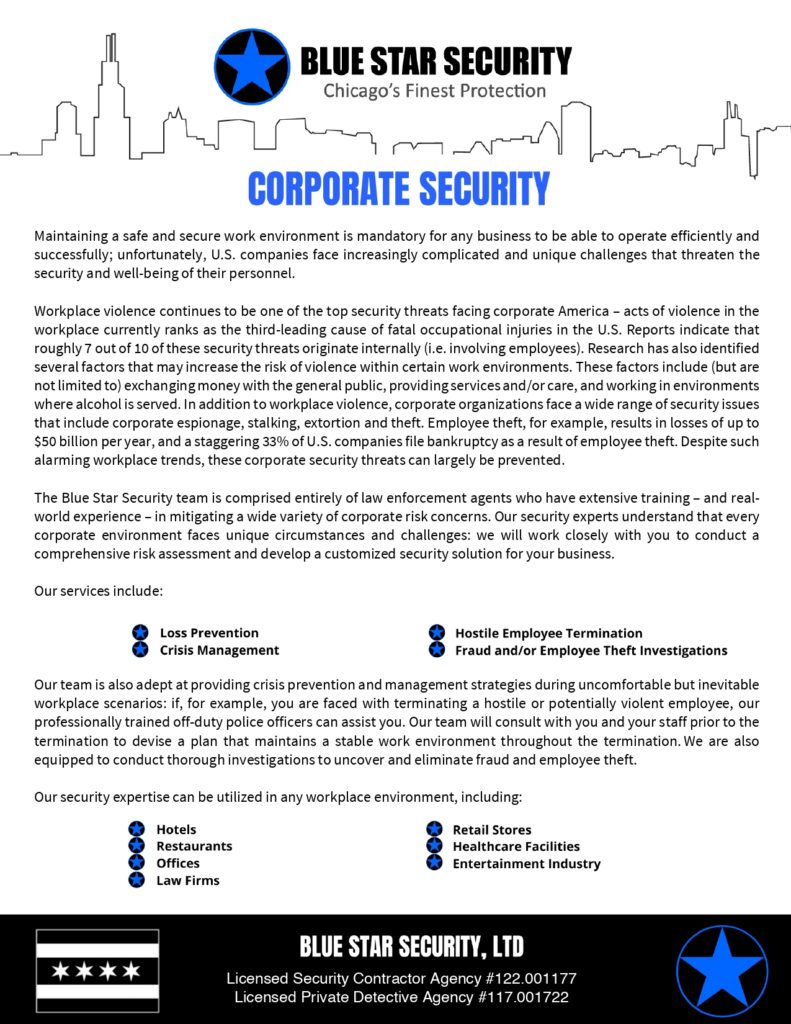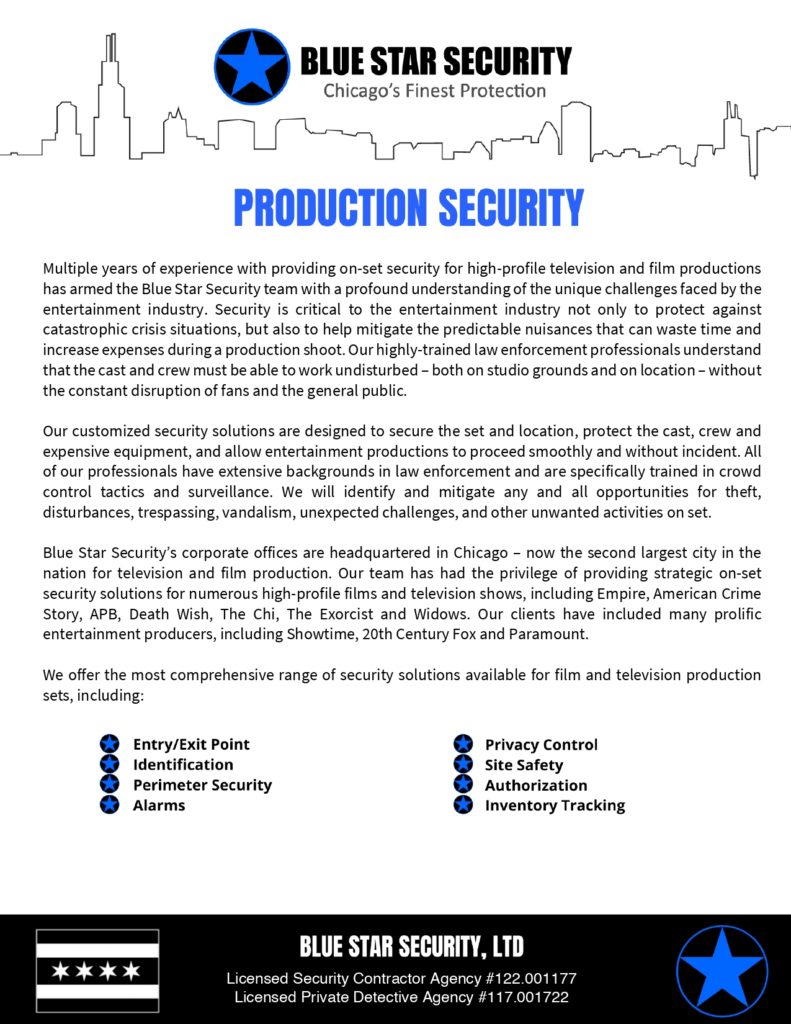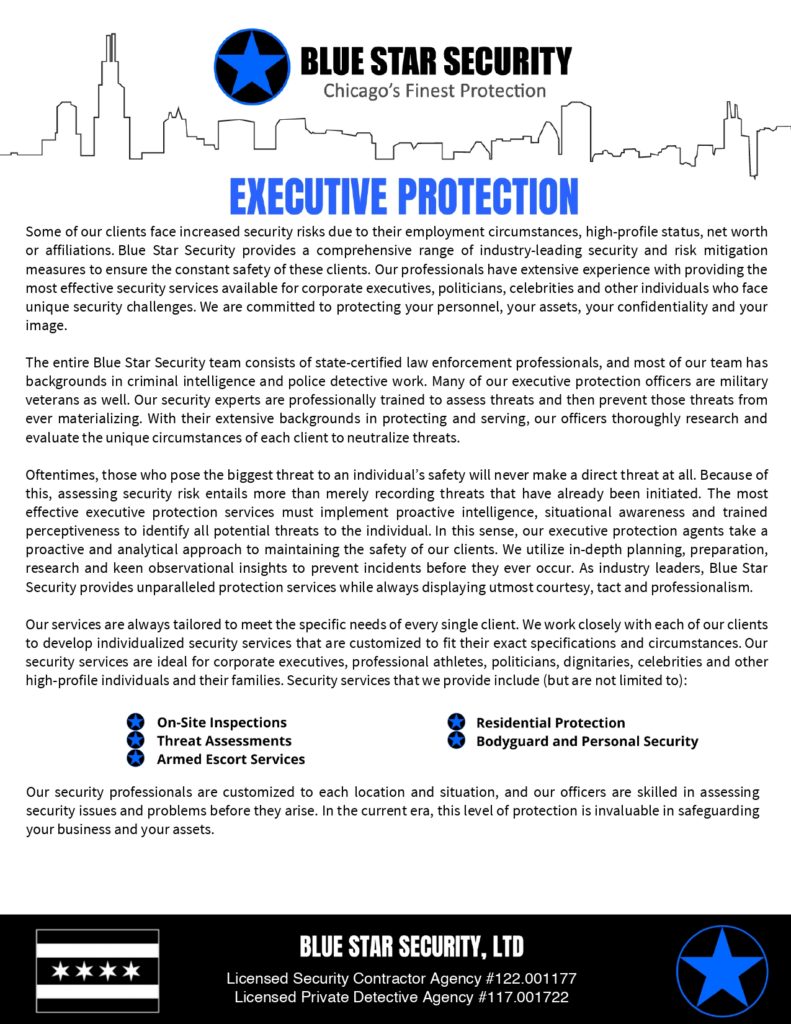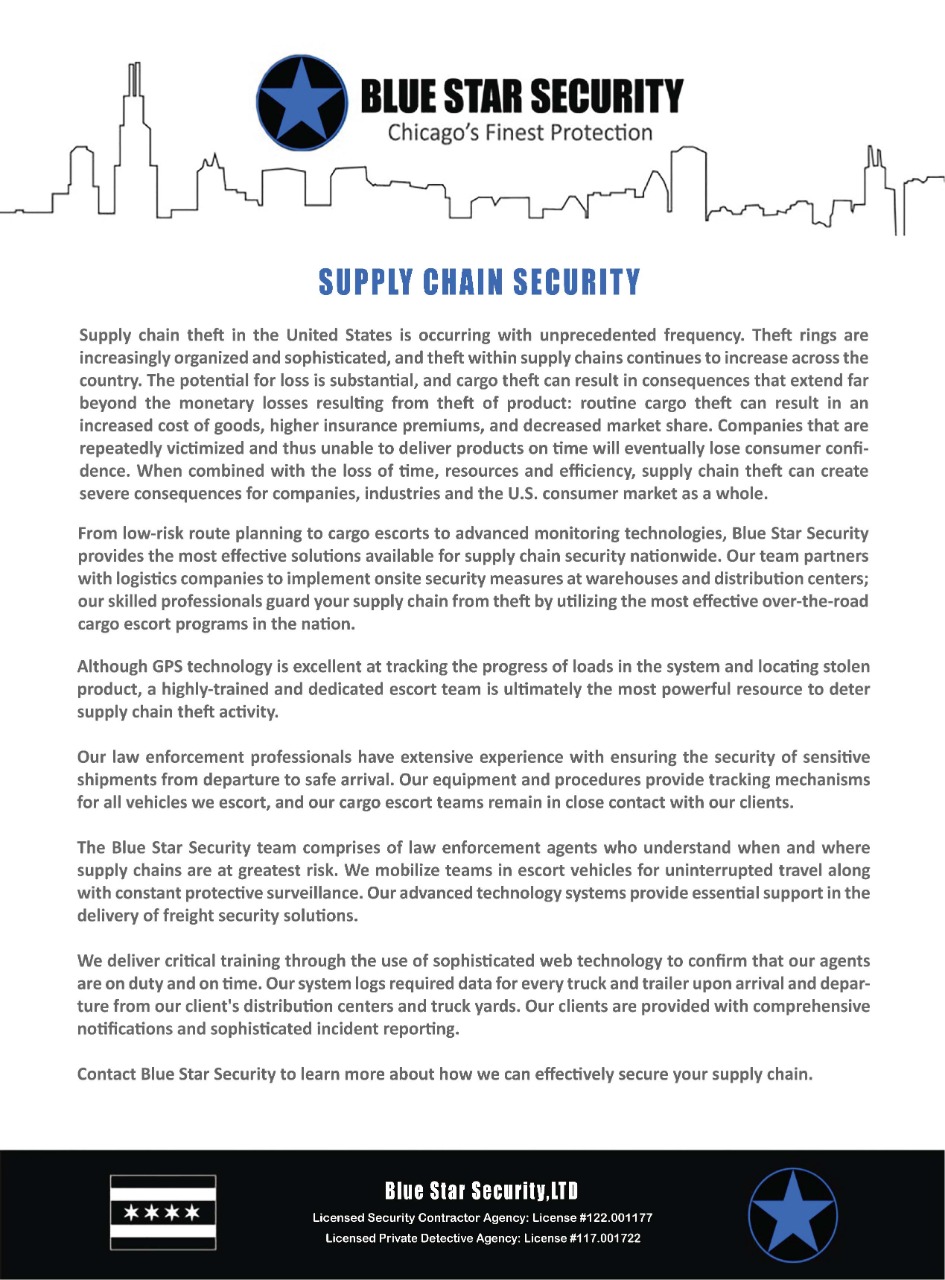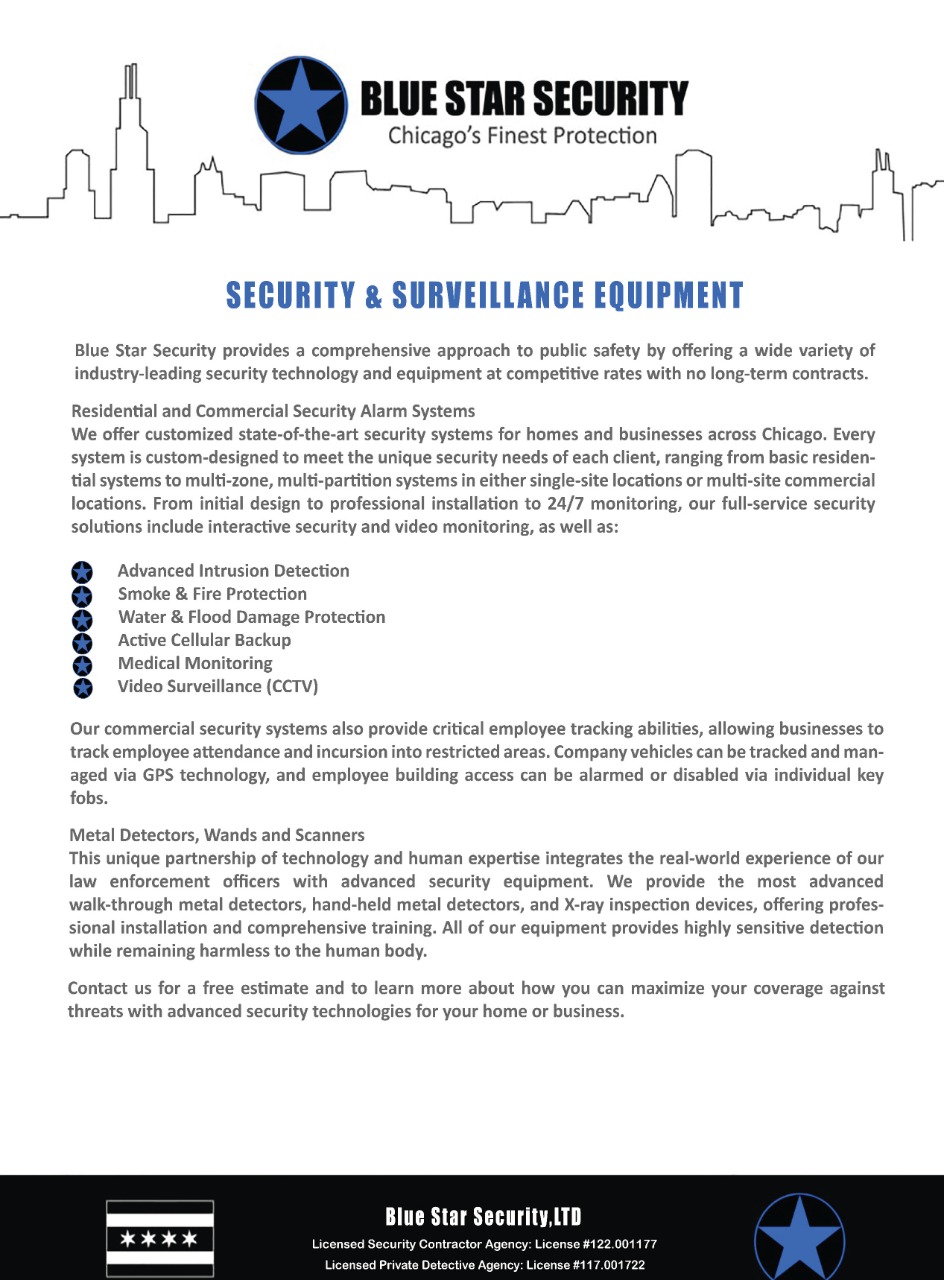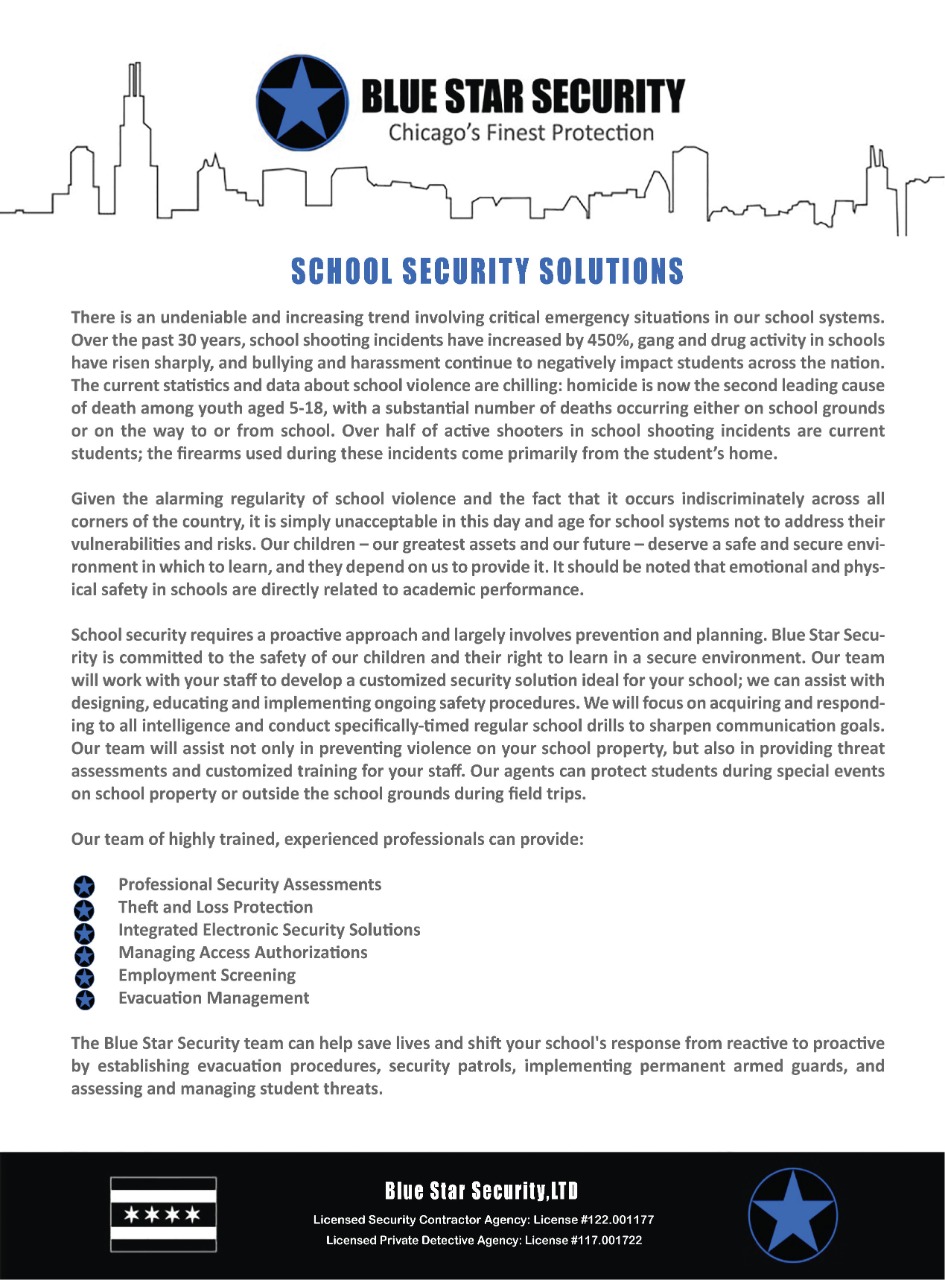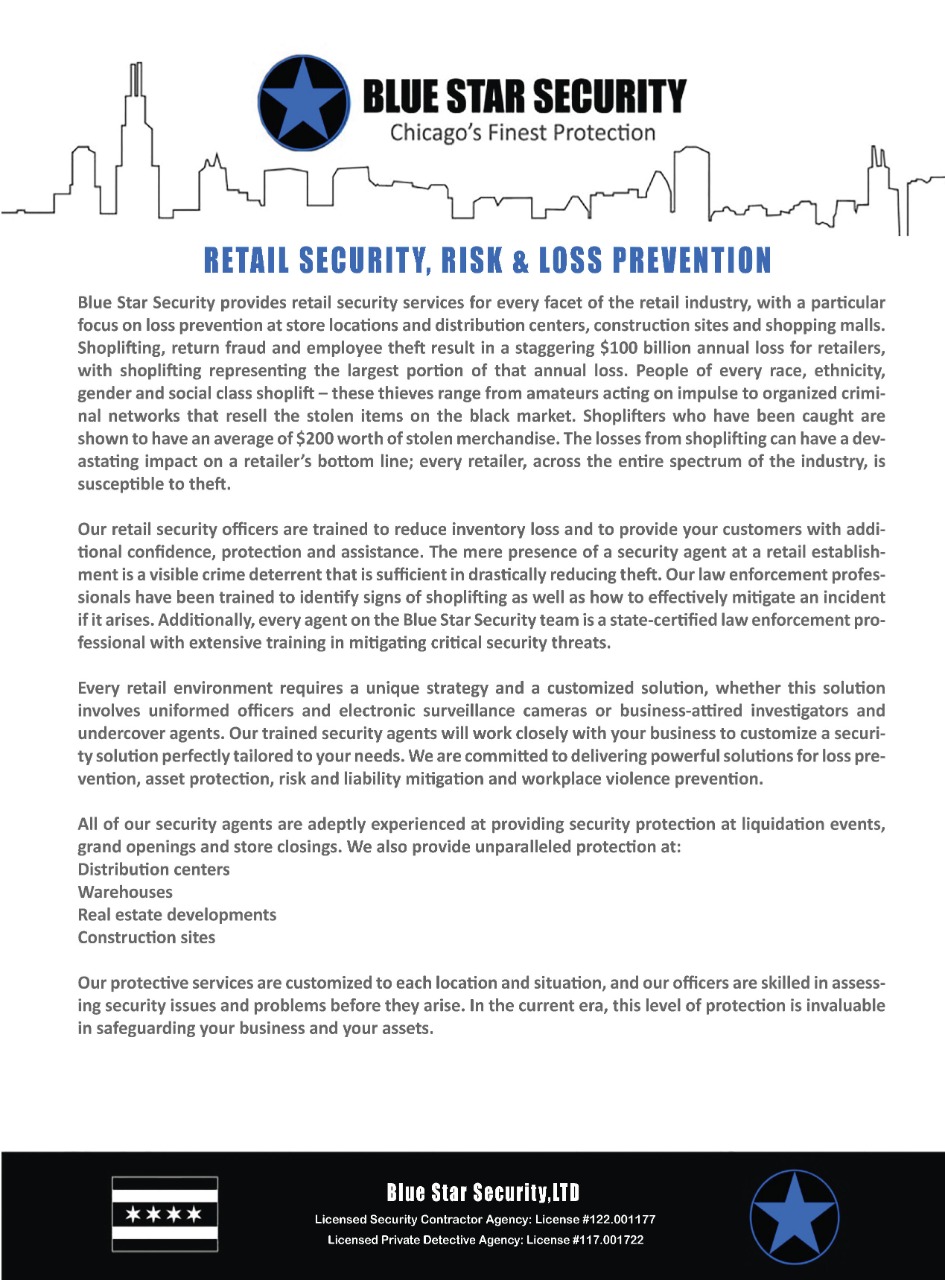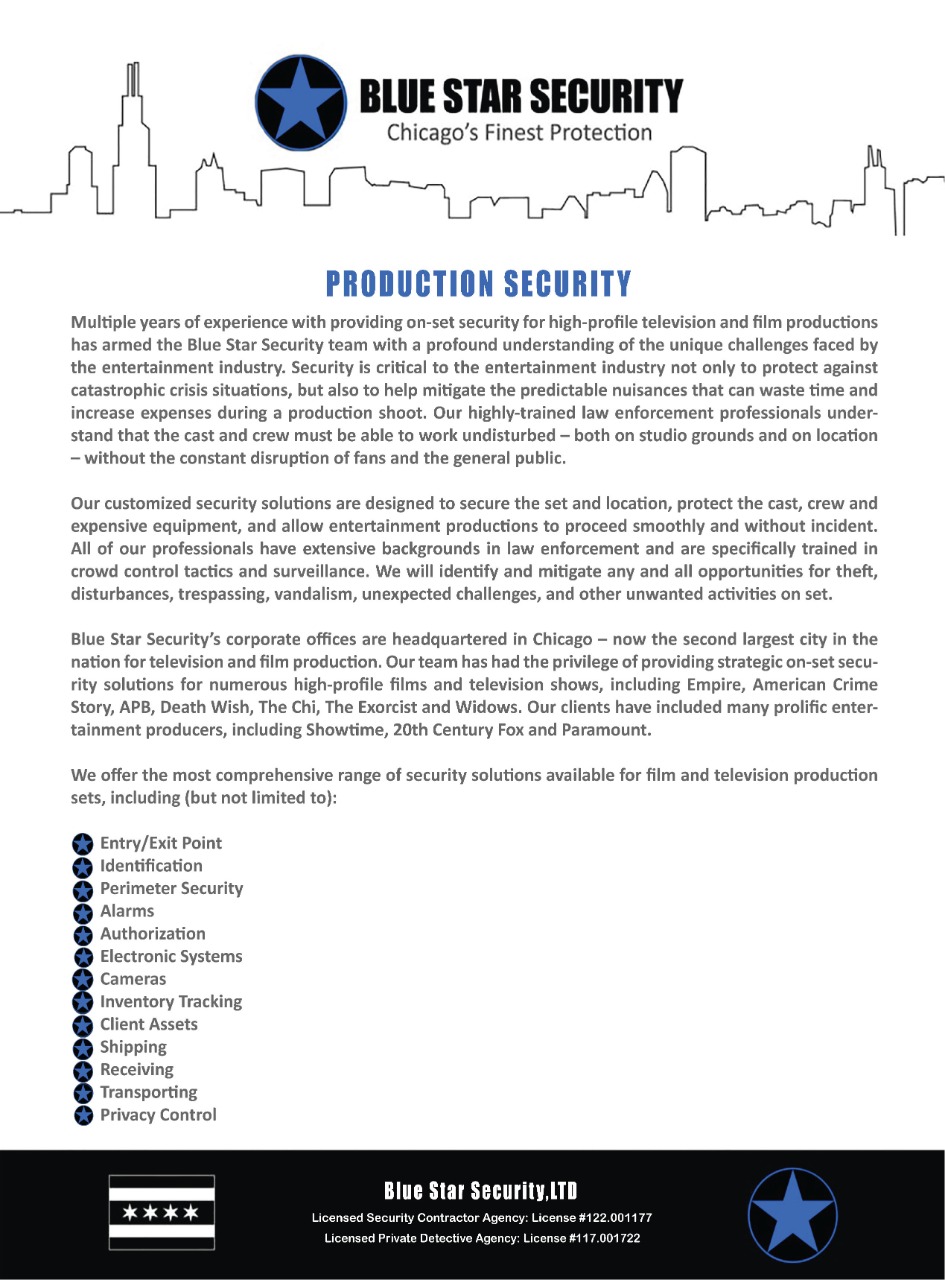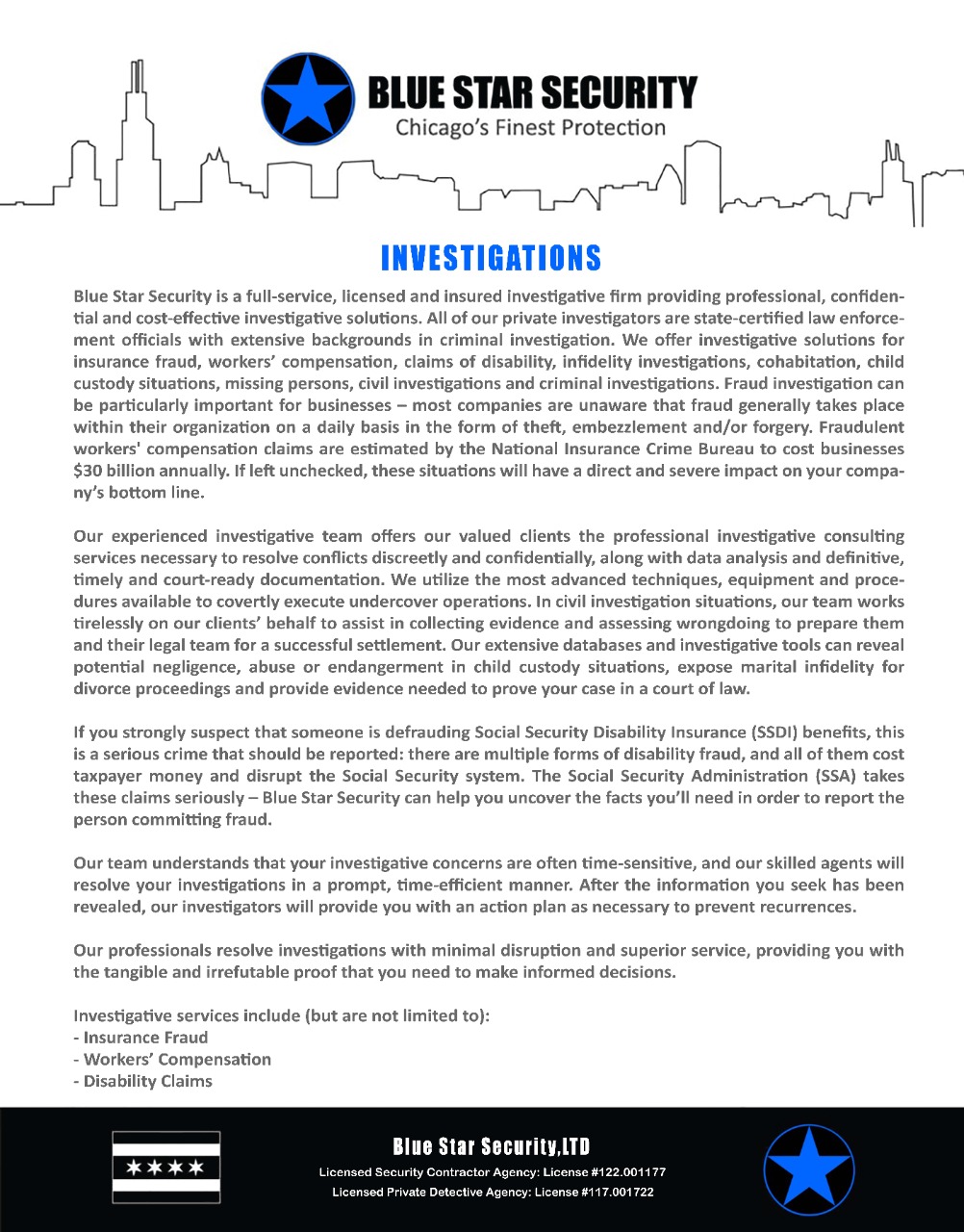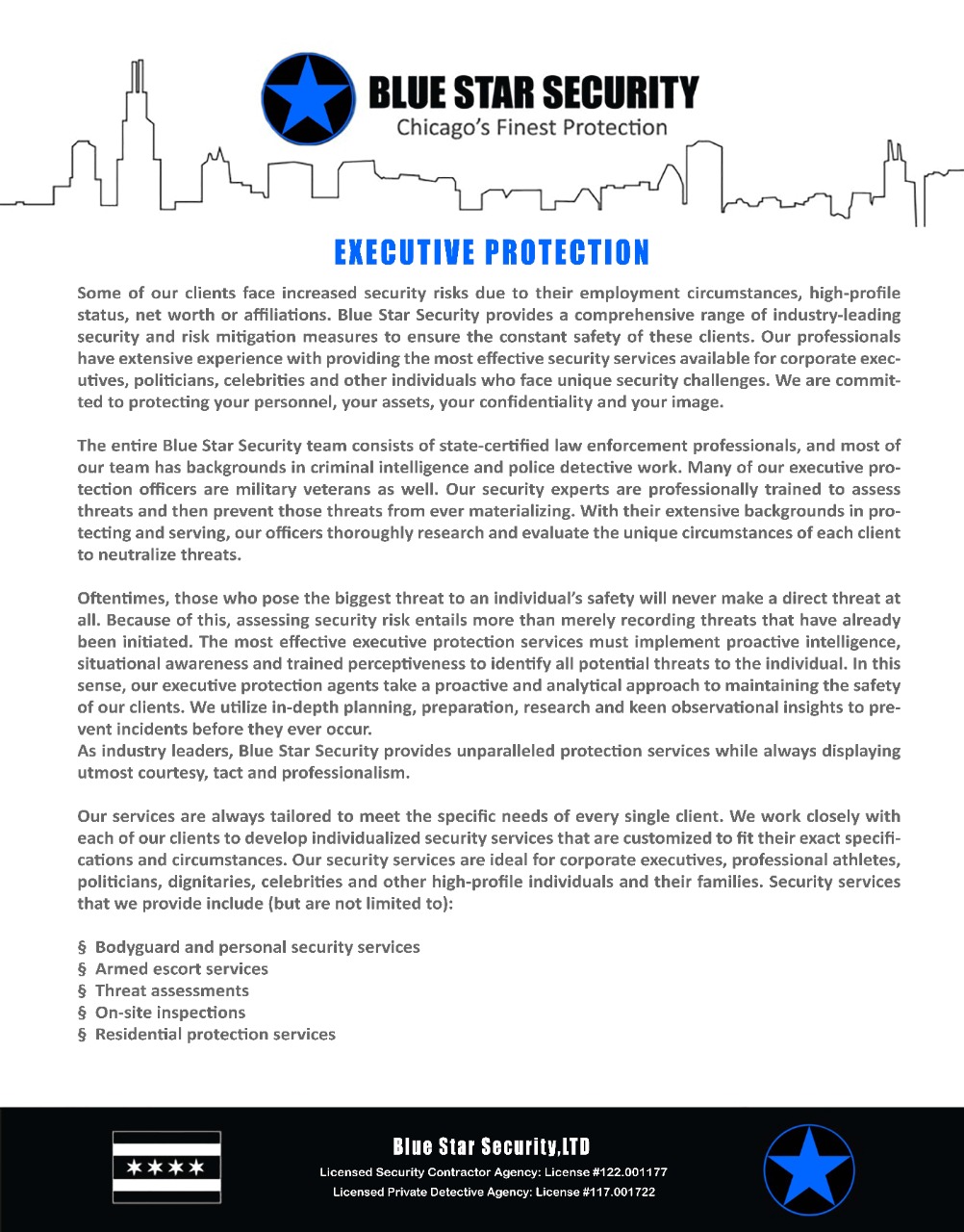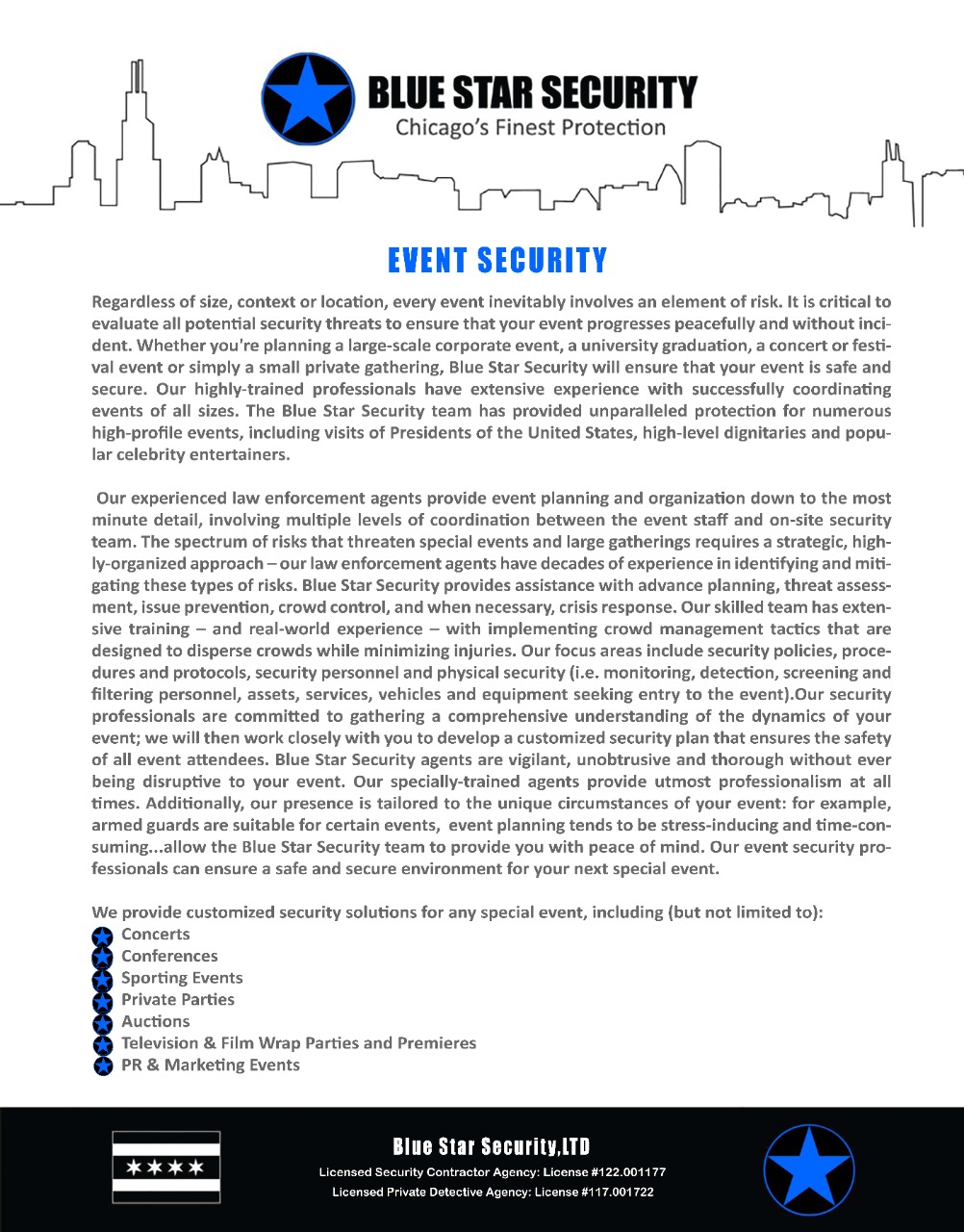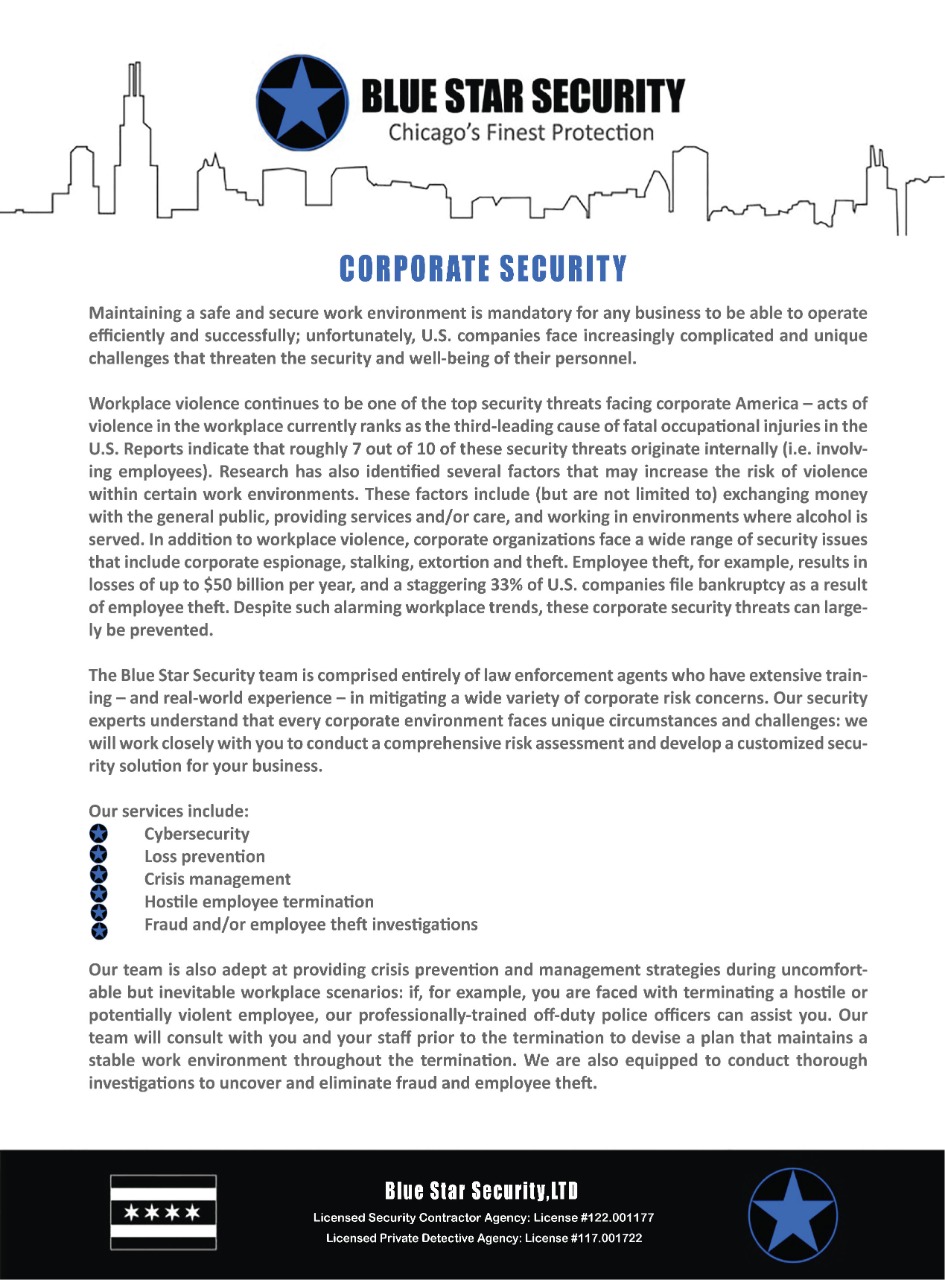As we look toward 2025, businesses are facing increasing pressure to ensure their supply chains are secure. Whether you’re managing inventory, shipping goods, or overseeing supplier relationships, the complexity and scope of modern supply chains present significant risks. Theft, fraud, cyberattacks, and disruptions can cause costly delays, harm reputations, and impact a company’s bottom line. With global trade becoming more interconnected and competition growing, ensuring your supply chain is secure is no longer optional—it’s essential.
So, why should supply chain security be a priority for your business in 2025? Let’s explore the key reasons and how a solid security strategy can benefit your company in the long run.
The Growing Threat Landscape
The threat to supply chains has evolved significantly over the past decade. As technology advances, so do the methods of criminals seeking to exploit vulnerabilities. In recent years, we’ve seen the rise of organized retail crime (ORC), sophisticated cyberattacks, and supply chain disruptions that extend far beyond theft. Today’s supply chains are not just physical networks of suppliers and logistics companies—they are complex, digitally connected ecosystems.
Cyberattacks targeting supply chains have become more prevalent, with hackers seeking to compromise data, steal intellectual property, or disrupt operations. A recent survey by the National Association of Manufacturers (NAM) found that nearly 50% of manufacturers have experienced a supply chain cyberattack in the last year. This underscores the growing need for businesses to protect both their physical and digital supply chain infrastructures.
At the same time, global events—such as political unrest, natural disasters, and pandemics—have made it clear how vulnerable supply chains can be. The COVID-19 pandemic, for example, caused widespread disruptions that led to delays, shortages, and increased security concerns. These risks are only expected to rise as businesses continue to operate in an unpredictable world.
The Financial Impact of Weak Supply Chain Security
The financial repercussions of supply chain breaches are significant and far-reaching. According to recent studies, the average cost of a supply chain disruption is estimated at $200,000 per incident. These costs can quickly escalate when considering the potential for delayed shipments, lost sales, damaged reputations, and long-term customer attrition.
In addition to direct financial losses, weak supply chain security can also increase operational costs. Companies may need to invest in last-minute logistics, higher insurance premiums, or resources to resolve issues caused by theft or fraud. When security is compromised, the knock-on effects can create a ripple of challenges that hinder productivity and diminish profitability.
Supply chain disruptions can also damage customer trust. Consumers expect products to be delivered on time and in good condition, and if delays or issues occur due to poor security, your customers may take their business elsewhere. Maintaining robust security in your supply chain is crucial to keeping your customers happy, loyal, and confident in your brand.
The Competitive Advantage of a Secure Supply Chain
In today’s fast-paced, highly competitive market, businesses that fail to prioritize supply chain security risk falling behind their competitors. Companies with secure, resilient supply chains are better equipped to handle unexpected disruptions and are more likely to meet customer demands on time.
Secure supply chains also offer greater visibility, which allows companies to track goods from start to finish. This transparency enables quicker identification of potential issues before they escalate into major problems. Additionally, businesses with secure supply chains are more attractive to investors and partners, as they demonstrate a commitment to reducing risk and ensuring the integrity of operations.
As a result, implementing a comprehensive supply chain security strategy can serve as a competitive advantage. Companies with effective security measures are more likely to maintain steady growth, win new contracts, and expand their market presence.
The Role of Technology in Securing Your Supply Chain
Advancements in technology play a significant role in improving supply chain security. As the industry embraces digital transformation, businesses can leverage tools such as blockchain, IoT devices, and AI to monitor and protect their supply chains.
Blockchain technology, for example, provides an immutable record of transactions that can be used to verify the authenticity of products and reduce the risk of fraud or counterfeit goods entering the supply chain. Similarly, IoT devices can provide real-time tracking of shipments, alerting businesses to any unusual activity, delays, or risks during transport.
AI and machine learning tools are also transforming supply chain security. These technologies can analyze vast amounts of data to detect patterns and predict potential disruptions before they occur. By identifying risks proactively, businesses can take preventive actions and minimize the impact of security breaches.
For example, AI-driven systems can help businesses optimize inventory management, detect theft, or identify vulnerabilities in the supply chain. These technologies make it easier for companies to respond quickly to potential threats and mitigate the risk of loss.
Building a Comprehensive Supply Chain Security Plan
To effectively protect your supply chain in 2025, it’s essential to build a comprehensive security strategy that encompasses both physical and cyber risks. Here are a few steps to consider:
- Assess Vulnerabilities:
Start by evaluating the weaknesses in your current supply chain security system. This includes everything from assessing supplier relationships to analyzing cybersecurity protocols. - Implement Real-Time Monitoring:
Leverage technology to monitor every step of your supply chain. Use surveillance cameras, GPS tracking, and RFID technology to track shipments and detect suspicious behavior in real time. - Ensure Cybersecurity Measures Are in Place:
Protect your digital infrastructure by implementing robust cybersecurity measures. Use encryption, firewalls, and secure communication channels to prevent data breaches and hacking attempts. - Establish Clear Communication Channels:
Ensure all stakeholders in the supply chain—suppliers, distributors, and employees—are aware of security policies and procedures. Regular communication helps prevent errors and ensures everyone is aligned on security goals. - Conduct Regular Training:
Train employees and partners on how to identify potential security threats, respond to breaches, and protect sensitive data. This can help reduce the risk of human error and fraud. - Collaborate with Security Experts:
Partner with professional security providers, like Blue Star Security, to bolster your supply chain protection efforts. Security experts can help you develop a tailored plan and offer on-the-ground support during critical times.
A Future-Proof Strategy for 2025 and Beyond
Supply chain security isn’t just a concern for today—it’s a long-term investment in the future of your business. As supply chains become more global and interconnected, the risks will continue to evolve, making it increasingly important for businesses to stay ahead of the curve. By investing in comprehensive supply chain security now, you can ensure your business is resilient, adaptable, and ready to meet the challenges of 2025 and beyond.
When you prioritize security, you not only protect your business from financial loss but also safeguard your reputation and build stronger relationships with customers, suppliers, and investors. By taking a proactive approach to supply chain security, you ensure the smooth flow of goods, maintain customer trust, and position your business for continued growth and success.
Final Thoughts
As we move into 2025, supply chain security must be a top priority for businesses of all sizes. The stakes are high—both financially and reputationally—and the risks are real. By investing in the right technologies, strengthening your security protocols, and partnering with experts, you can mitigate threats and ensure your supply chain operates smoothly and securely.
At Blue Star Security, we specialize in providing comprehensive security solutions tailored to meet the unique needs of your supply chain. Take action now to safeguard your supply chain in 2025, protect your assets, and stay one step ahead of potential risks. Contact the Blue Star Security team to discuss a customized plan for your supply chain.
To learn more about our Supply Chain Security services, visit https://bluestarsecurityllc.com/services/supply-chain-security/


